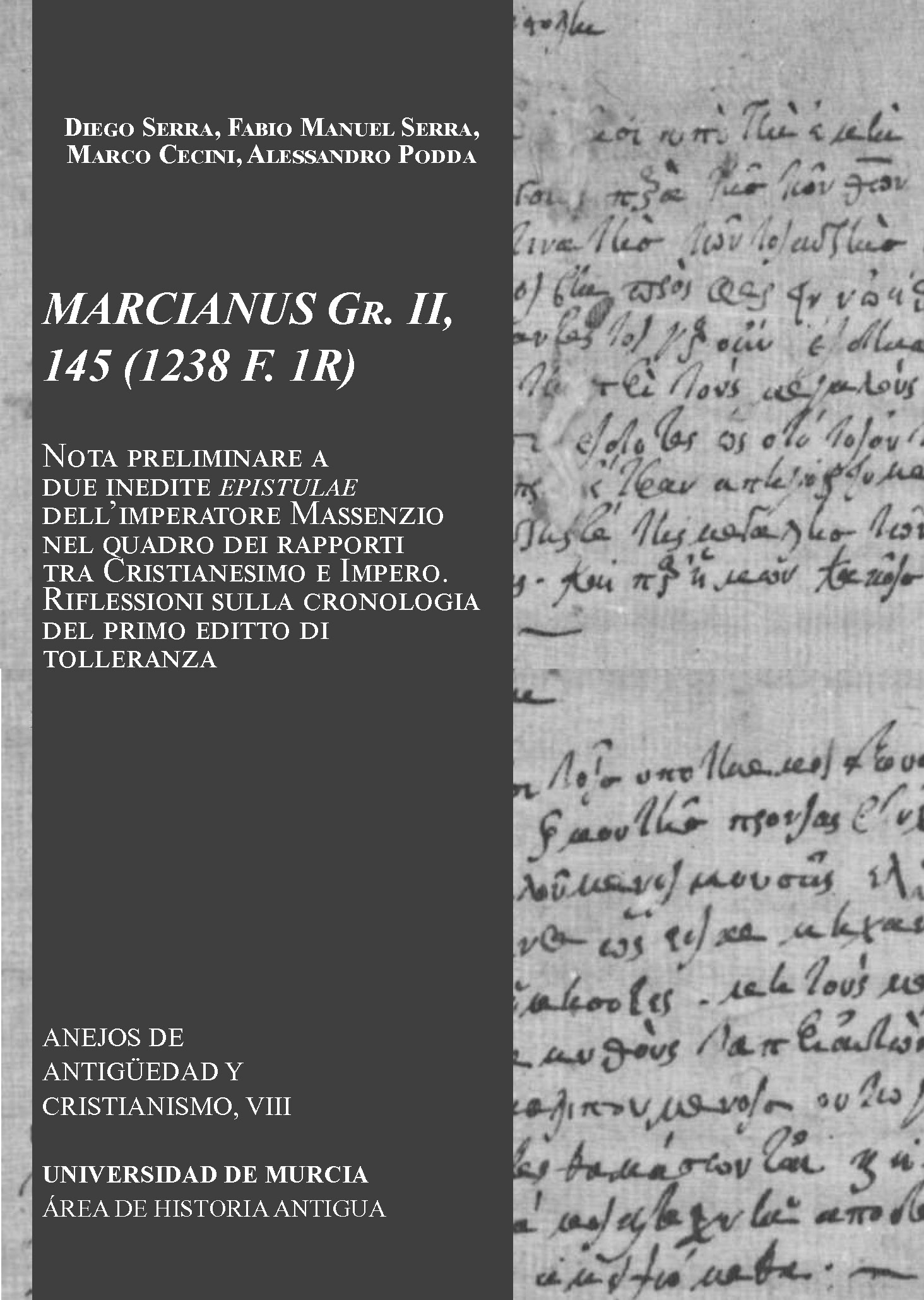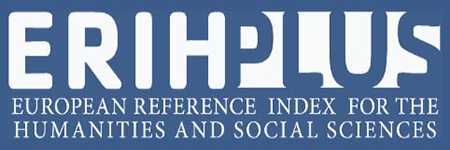Vol. 8 (2021): Anejos de Antigüedad y Cristianismo: Marcianus Gr. II, 145 (1238 F. 1R). Nota preliminare a due inedite epistulae dell’imperatore Massenzio nel quadro dei rapporti tra Cristianesimo e Impero. Riflessioni sulla cronologia del primo editto di tolleranza.
Antigüedad y Cristianismo
This study carefully analyses two unpublished documents coming from the Greek collection of the Biblioteca Marciana in Venice (former Collezione Naniana), preserved in a manuscript dating back to the 16th century. The paleographic, codicological and diplomatistic analysis performed on f. 1r from Marc. Gr. II, 145 (1238) (fig. 9-11), in an excellent state of conservation, aimed at proposing a diplomatic, diplomatic-interpretative and genetic edition of two legal letters, written in Greek, which display the name of the emperor Maxentius in the intitulatio.
A grammatical, syntactical and morphological analysis has been performed in order to assess the content of the documents. A linguistic comparison has been drawn between Medieval/Early Modern Greek and Classical/Koiné Greek, underlining all the aspects related to morphology, syntax and phonetic transformations, transformation of nouns and verb forms that – it is assumed – might have occurred during a long timespan from Medieval to Early Modern Period.
This allowed us to discuss some hypothesis and conjectures to assess, as follows:
- the authenticity and the level of interpolation of the two letters at issue, preserved for about 1200 years (AD 4th to 16th century) in the Byzantine archives, thanks to a long chain of transcriptions; and
- to define the sociocultural context in which they were produced, in order to give evidence as to the dating of the letters, given the absence of subscriptiones for both texts.
One of these two documents, in particular, might be considered as the source of direct knowledge of the edict of tolerance by Maxentius, quoted by Eusebius of Cesarea, that is, the letter of transmission of the first edict of tolerance (s.c. Letter-Edict, according to Mazzarino's terminology) which officially put an end to the persecutory edicts of Diocletian in the West; whereas the second document (of a more uncertain legal nature, presumably a fragmentary rescriptum rather than a general law) could instead refer to an attempt by Maxentius to regulate the disputes that had arisen between Christians and Lapsi, and could better explain the reason of an alleged intransigence, attributed by some sources to Maxentius, towards some members of the Christian communities. This study elaborates and discusses some hypotheses, posing some questions: future interdisciplinary studies will be necessary to better clarify and specify all the points discussed in this preliminary note.






















